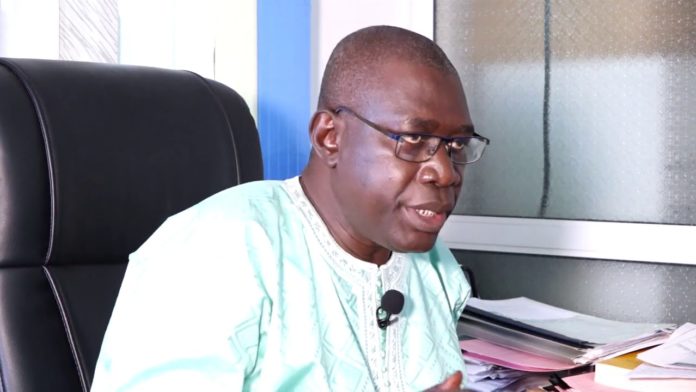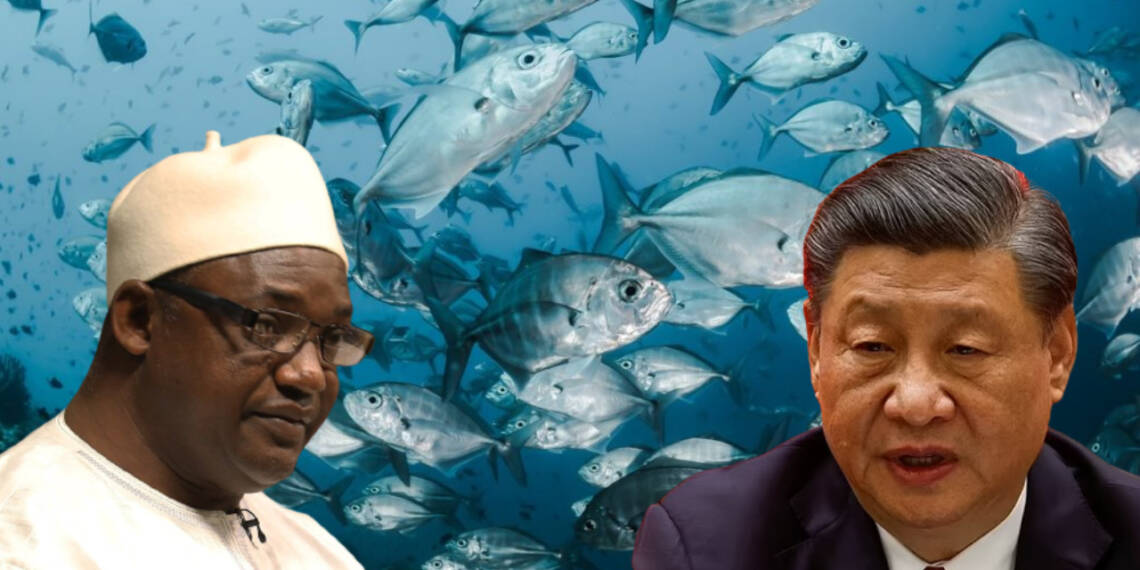The Gambia welcomed China investments in hopes of economic advancements. However, what it received in the name of investments is something that requires serious review.
The Gambia, a small West African country, is known for its beaches and wildlife. With its long coastline and rich marine life, fishing has long been a major industry in the country, providing livelihoods to many. But then came the Chinese “investments,” and what transpired soon after has left the fishing community distraught. Let’s find out more about it.
Chinese fishmeal Company: a “threat” to The Gambia
In recent years, a new player has entered the fishing scene in The Gambia: China-owned fishmeal factories that are destroying livelihoods, the environment, and threatening the country’s food security situation. These factories produce fish oil and fishmeal, which are exported to China, Europe, and beyond. Fishmeal is primarily used in animal feed and is in high demand in China, where it dominates the fishmeal landscape among importing countries.
Read More: US/China- controlled WTO is legalizing illegal fishing all across the African coastline
However, the cost of these factories has been significant for the local communities in The Gambia and its economy, leading to growing calls for them to be shut down. According to a BBC report, locals are increasingly wary of a facility run by Chinese fishmeal company Golden Lead in the coastal village of Gunjur, which is around 45km (28 miles) south of the capital, Banjul. For many years, the fishmeal industry has raised questions about sustainability in the West African country. It uses vast quantities of fish, such as Sardinella and Bonga, which make up at least half of The Gambia’s total protein intake.

Furthermore, the Dutch non-governmental organization Changing Markets Foundation found that the biggest of these fishmeal factories accounted for 40% of Gambia’s entire fish catch for a year. These factories have depleted fish stocks in the country, making it a scarce commodity and raising its prices abnormally for locals. Fishermen complain that sometimes they go up to a week without catching any fish.
Golden Lead and its “sins”
The Chinese company Golden Lead has been at the center of controversy in The Gambia recently due to its operations causing environmental damage and health hazards in the area. Local fishermen have reported a decline in their catch since the factory began operating.
One year after the factory opened in 2017, the lagoon in the Bolong Fenyo, a nearby wildlife reserve, was filled with dead fish and turned a deep red. The National Environment Agency filed a case against Golden Lead at a magistrates’ court, alleging that wastewater from the factory had caused the damage. However, operations were resumed after an out-of-court settlement of $25,000 was reached.

In another court case, a former top civil servant in the fisheries ministry, Bamba Banja, was found guilty of corruption for receiving at least five payments of $1,600 between 2018 and 2020 from Golden Lead. He was jailed for two years and ordered to pay a fine.
The company’s operations have also led to health issues for locals. Fishermen and factory workers have complained of skin problems after entering the sea near the factory. Although there is no definitive evidence that these ailments are the fault of the factory. Two separate investigations by international NGOs, Greenpeace International and Changing Markets Foundation, have warned that the scale of Gambia’s FMFO production is unsustainable, and the nation’s food security is under threat if the industry is not curtailed.
Read More: Out with the old, in with the new: Ghana and Gambia pave the way for a digital future
Despite the criticisms, the current Fishery Minister Omar Gibba has dismissed concerns about overfishing, saying there was no scientific evidence to back this. However, environmental journalist Mustapha Manneh has pointed to a UN report from 2019 that found sardinella and bonga were being overexploited in the waters off Gambia. He believes that there could be serious consequences in five years’ time, with the amount of fish being extracted every day seriously affecting biodiversity and potentially leading to food insecurity.
China backstabbed Gambia?
The concerns regarding the operations of these Chinese companies are particularly alarming.
The Gambia has developed a close relationship with China in recent years, despite the fact that the country’s law prohibits foreign nationals from leasing land for more than 26 years, as reported by the political watchdog Watch Gambia. Under the controversial leadership of ex-President Yahya Jammeh, the first Chinese fish factory was opened in Gunjur in 2015, shortly after The Gambia severed ties with Taiwan and granted a 99-year lease.
Furthermore, after The Gambia ended its ties with Taiwan, China offered its new African ally support in various areas, including infrastructure, agriculture, and tourism.

However, it now appears that the opposite has occurred. Fisheries and tourism are essential pillars of The Gambian economy. Fish is the primary source of animal protein in the Gambian diet and a significant component of food security. The FMFO industry is also detrimental to a developing eco-tourism sector situated in the same area of sweeping sandy coastline and mangrove swamps as the fishmeal plants. Lodge owners are lamenting that visitors are being deterred by the noxious side effects.
Tourism is one of The Gambia’s most significant employers, accounting for 20% of GDP. As a result, the operations of the Chinese fishmeal factories could have significant consequences for the already struggling Gambian economy, as locals are calling for their closure.
Read More: An unhappy nation with a puppet president, will meet the same fate as Gambia
It seems that The Gambia’s trust in China’s development promises has led to a “Golden” nightmare. With the Golden Lead factory causing havoc for the Gambian economy and environment, it’s become clear that greater accountability and regulation of foreign-owned companies is needed. It’s a lesson learned the hard way that before blindly trusting, it’s essential to read the fine print and ensure the cost is worth it.
https://www.youtube.com/watch?v=77b78WF7EAs







